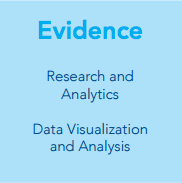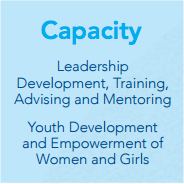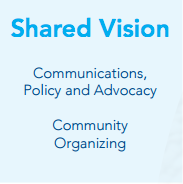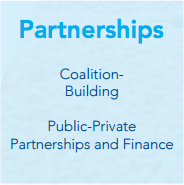
Sustainable Supply Chains
COMPLEX PROBLEM: Consumers and investors increasingly demand that companies look beyond short-term profit when developing their supply chains. Companies must effectively manage the demands of economic growth, environmental protection, fair labor practices and business ethics – and they must do so in the context of continuously evolving markets and relationships.
INTEGRATED SOLUTION: Winrock International’s approach to addressing this complex challenge encompasses business incentives, scientific rigor, risk management and sustainability monitoring. Our solution helps companies embed sustainability principles into their procurement practices. We help companies optimize supply chain efficiencies while achieving economic, social and environmental targets at the corporate level and in communities.

Winrock International manages a diverse portfolio of 100 projects in 40 countries, dealing with agriculture, economic growth, the environment, and human and social capacity development. We work collaboratively with governments, industries, businesses, conservation groups, farmers and communities. By listening to multiple stakeholders, we better understand the drivers and innovations needed to strengthen agricultural supply chains.
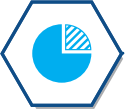 Understand business incentives
Understand business incentives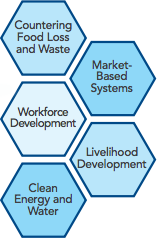
To be sustainable and assure future livelihoods, supply chains must be grounded in economic viability. Winrock International applies labor-saving technologies and practices to increase productivity and economic returns. We strengthen livelihoods by helping smallholder farmers diversify income and find off-farm employment. Our clean and renewable energy solutions support off-farm employment and improve local services. For example, clean, reliable energy not only connects off-grid farmers, but also enables businesses to increase irrigation and water services, reduce food loss and waste, develop innovative processing and packaging, and improve transportation logistics and cold chain solutions.
 Apply science and use technology
Apply science and use technology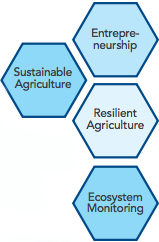
Winrock combines technical expertise in livestock and agricultural production with the capacity to quantify environmental costs and benefits. We understand the valuation of ecosystem services and have special expertise in water quality management and greenhouse gas accounting through our sophisticated carbon trading platform. We partner with others to test and deliver the latest technologies and ideas in emerging areas, such as data collection and analysis using automated sensors and information dissemination via smartphones and digital videos.
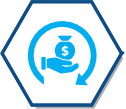 Manage risk
Manage risk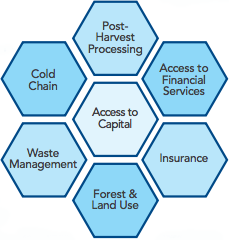
Our work is informed by extensive experience developing bankable business plans and leveraging private investment capital. We engage with governments and private sector stakeholders around the world to reduce supply chain risk while improving social and environmental outcomes.
Our programs aim to build trusting relationships in the supply chain that endure for the long-term. We support delivery systems that get information and improved products to smallholders quickly so they are better able to adjust to the impacts of climate change. We help women develop the skills they need to participate in family decisions, improve agricultural livelihoods and develop new sources of income.
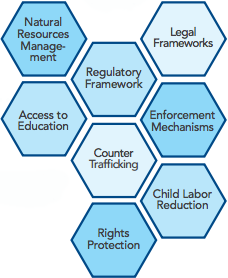
 Assure environmental and social performance
Assure environmental and social performance
As a leader in the measurement and monitoring of ecosystem services and social well-being, Winrock International knows that data collection standards and protocols are essential to meeting global sustainability goals. Our multi-faceted programs cut across economic and development sectors and have helped communities, governments and companies achieve and report progress toward their environmental and human impact commitments.
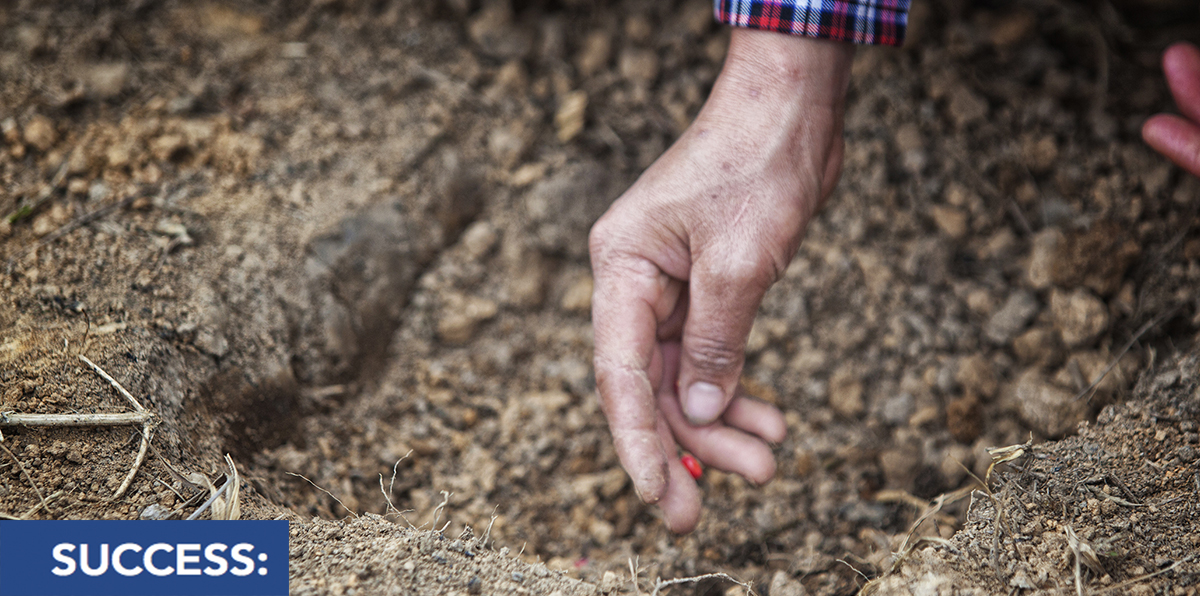
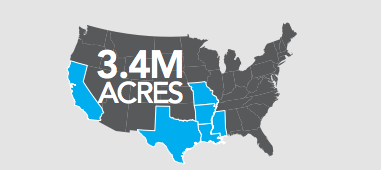 Through its American Carbon Registry, Winrock developed and approved the first methodology for reducing greenhouse gas emissions from rice production. Rice cultivation is the third largest source of methane emissions in the agricultural sector. Under the rice methodology, 3.4 million acres across six states are eligible to generate revenue from carbon offsets. The result: potential emissions reductions of over one million tons over the next 10 years, an amount currently valued at around $10 million.
Through its American Carbon Registry, Winrock developed and approved the first methodology for reducing greenhouse gas emissions from rice production. Rice cultivation is the third largest source of methane emissions in the agricultural sector. Under the rice methodology, 3.4 million acres across six states are eligible to generate revenue from carbon offsets. The result: potential emissions reductions of over one million tons over the next 10 years, an amount currently valued at around $10 million.
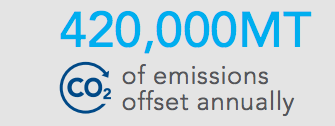 Smallholders produce 40 percent of the world’s palm oil. Pilot activities have successfully increased smallholder productivity, which could decrease pressure to clear additional forests. Winrock has prepared technical and financial analyses for reducing methane emissions at 30 processing mills in Indonesia, leveraging more than $40 million in investments and offsetting 420,000 metric tons of emissions annually
Smallholders produce 40 percent of the world’s palm oil. Pilot activities have successfully increased smallholder productivity, which could decrease pressure to clear additional forests. Winrock has prepared technical and financial analyses for reducing methane emissions at 30 processing mills in Indonesia, leveraging more than $40 million in investments and offsetting 420,000 metric tons of emissions annually
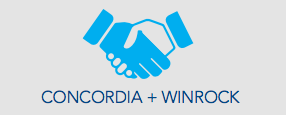 Many global suppliers and buyers have committed to eliminate labor trafficking from their supply chains. In partnership with the nonprofit organization Concordia, Winrock has launched a campaign to develop a collaborative, standards-based, industry-wide approach to addressing human rights and labor abuses in the fishing industry. The initiative will establish a transparent, collective governance mechanism to set and enforce standards, and will draw on the latest technology to allow for data-driven decisions and monitoring.
Many global suppliers and buyers have committed to eliminate labor trafficking from their supply chains. In partnership with the nonprofit organization Concordia, Winrock has launched a campaign to develop a collaborative, standards-based, industry-wide approach to addressing human rights and labor abuses in the fishing industry. The initiative will establish a transparent, collective governance mechanism to set and enforce standards, and will draw on the latest technology to allow for data-driven decisions and monitoring.
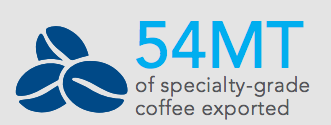 Winrock’s collaboration with the Coffee Quality Institute (CQI) and a multi-national coffee trader has provided approximately 5,000 Burmese coffee farmers with access to international markets for the first time. The first coffee exports from Burma received specialty grades under CQI’s grading system, allowing the coffee to fetch premium prices at as much as two times what the farmers earn in the domestic market. Our holistic approach includes preharvest training for farmers, assistance with post-harvest
Winrock’s collaboration with the Coffee Quality Institute (CQI) and a multi-national coffee trader has provided approximately 5,000 Burmese coffee farmers with access to international markets for the first time. The first coffee exports from Burma received specialty grades under CQI’s grading system, allowing the coffee to fetch premium prices at as much as two times what the farmers earn in the domestic market. Our holistic approach includes preharvest training for farmers, assistance with post-harvest
processing and help meeting quality standards.
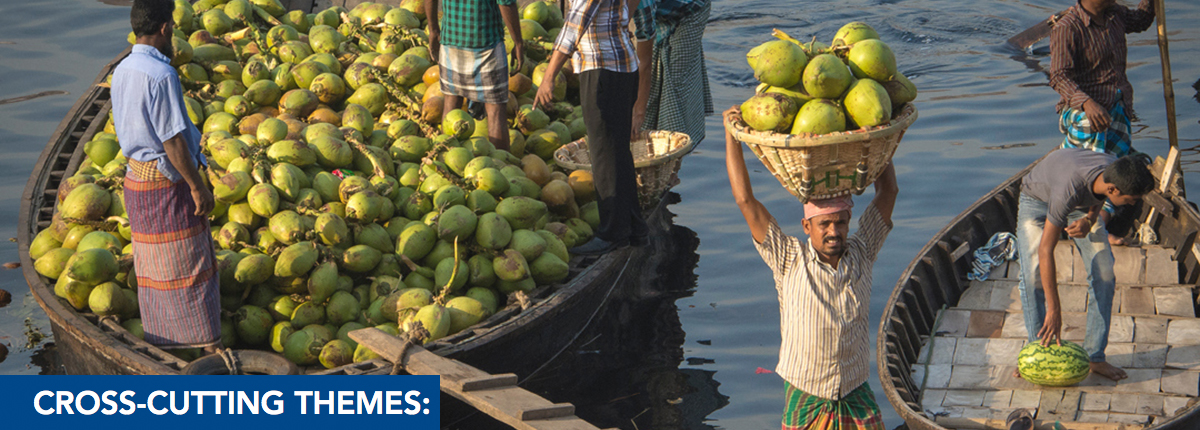
Winrock’s integrated solutions are rooted in the following principles:
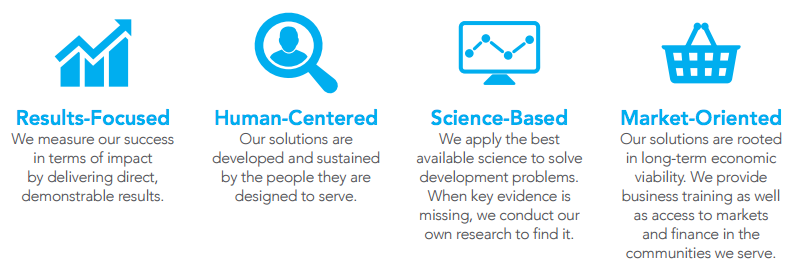
Winrock’s integrated solutions incorporate the following tools and processes:
